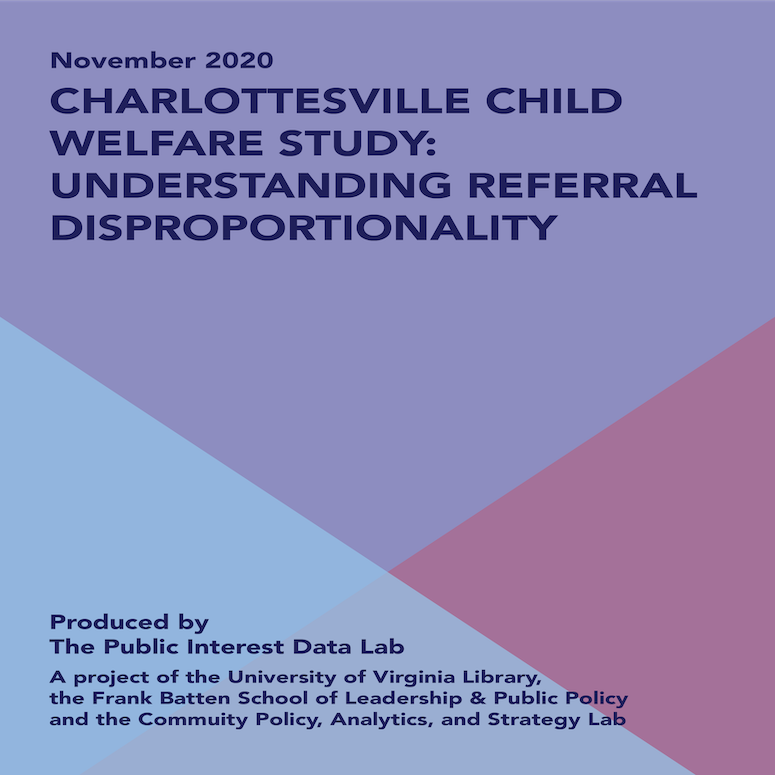
This report marks the third year of the Public Interest Data Labs work with the Charlottesville Department
of Social Services (CDSS) on issues of disparities in child welfare. The current study expands upon the previous two research efforts with an increased focus on the origins of disproportionality in referrals, incorporating the impact of reporter types and neighborhood origin, and examines an additional outcome, the likelihood of re-referral. In seeking to gain a better understanding of the origin of racial disproportionality, we examine referrals by key characteristics of census tracts – the racial composition and the extent of poverty (Section 2). To understand the source of the referral, we investigated referrals by race made by individuals interacting with a child in a nonprofessional capacity or in one of four professional sectors – education, health care, legal, and social services (Section 3). We analyze the effect of these origins – neighborhood and reporter type – along with race on the post-referral decisions, that is, whether a referral is screened in, investigated or assessed, and the outcomes of investigations and family assessments (Section 4). Given the higher frequency of referrals made on behalf of Black and Multiracial children, we further examined whether children with valid referrals are referred again to CPS within the study period and whether this varies systematically by race, neighborhood, or initial referral outcomes (Section 5).